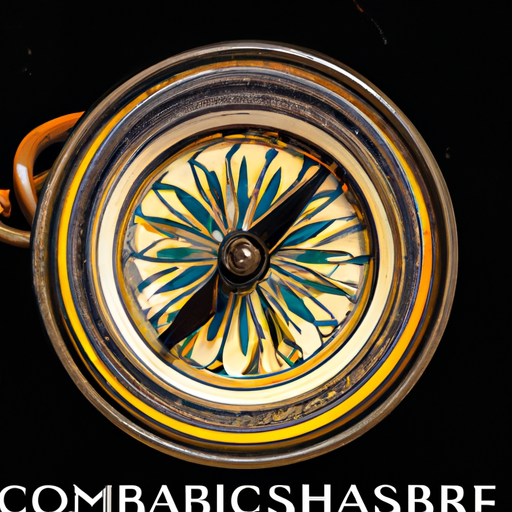When it comes to selecting a new pet, the heritage or origin of a breed may hold more significance than meets the eye. While many factors come into play when choosing a companion, understanding the heritage and background of a breed can provide valuable insights into its personality traits, health risks, and overall compatibility with your lifestyle. By taking the time to consider a breed’s origins, you can make a more informed decision that aligns with your preferences and ensures a long-lasting bond with your furry friend.
Understanding Breed Heritage and Origin
Defining Heritage and Origin
When it comes to selecting a breed of dog, understanding their heritage and origin plays a crucial role in making an informed decision. Heritage refers to the historical background and lineage of a breed, while origin pertains to the geographical location where the breed originated from. These aspects provide valuable insight into the breed’s characteristics, temperament, and potential health issues. By delving into a breed’s heritage and origin, you can gain a deeper understanding of what to expect from the dog and determine if it aligns with your preferences and lifestyle.
The Role of Heritage in Breed Selection
Heritage plays a significant role in breed selection as it offers valuable insights into a dog’s personality, behavior, and physical attributes. Different breeds were developed with specific purposes in mind, such as herding, guarding, hunting, or companionship. Understanding a breed’s heritage allows you to assess whether their innate traits align with your own preferences and needs. For example, a herding breed may not be best suited to a sedentary lifestyle, while a lap dog breed may not be ideal for active individuals seeking a hiking partner. By considering a breed’s heritage, you can make a more informed decision about which breed is the best fit for you.
Understanding the Importance of Origin in Breed Selection
Origin is another crucial factor to consider when selecting a breed. The geographical location where a breed originated can provide valuable insights into their physical adaptations and temperamental traits. For example, breeds from colder climates tend to have thicker coats and higher endurance levels, while breeds from desert regions may have evolved to withstand the heat. Understanding a breed’s origin helps paint a picture of the environmental factors that influenced their development. By considering a breed’s origin, you can choose a dog that will thrive in your particular climate and environment.
Factors to Consider When Evaluating Breed Heritage
Breed History and Evolution
A breed’s history and evolution provide important context for understanding their heritage. Researching the breed’s development over time can reveal how their physical attributes and temperamental traits have been shaped by selective breeding and human intervention. You can learn about the historical purposes of the breed and how they have evolved to meet the needs of specific tasks. By understanding a breed’s history and evolution, you can anticipate how these factors will influence their behavior, trainability, and compatibility with your lifestyle.
Geographical Influence on Traits
The geographical location where a breed originated plays a significant role in shaping their physical attributes and temperamental traits. Whether a breed hails from a mountainous region, a coastal area, or a plains habitat, the environment in which they evolved will have influenced their characteristics. For example, breeds developed in hilly terrains may have strong muscular build, while breeds from coastal regions may have webbed feet for swimming. By considering the geographical influence on a breed, you can better predict their adaptability to your living conditions and outdoor activities.
Human Purpose and Intent
Throughout history, humans have selectively bred dogs with specific traits to serve various purposes. Understanding the human purpose and intent behind a breed’s development can shed light on their personality and behavior. For example, working breeds were bred for their intelligence, endurance, and ability to fulfill specific tasks such as herding or hunting. On the other hand, companion breeds were selectively bred for their social nature, adaptability, and affectionate disposition. Recognizing the human purpose and intent behind a breed’s development allows you to choose a dog that aligns with your lifestyle and expectations.
Breeding Standards and Pedigree
Breed standards and pedigrees play a vital role in evaluating a breed’s heritage. Breed standards act as guidelines for breeders, outlining the ideal physical and behavioral characteristics of a particular breed. A dog’s pedigree indicates their lineage and confirms their purity within a specific breed. By examining breed standards and pedigrees, you can assess the authenticity and quality of a breed, ensuring that you are getting a dog that fully embodies the desired traits of their heritage.
Influences of Heritage on Breed Characteristics
Physical Attributes and Predispositions
A breed’s heritage has a profound impact on their physical attributes and predispositions. Different breeds have distinct appearances, including size, coat type, and color variations. For example, breeds like the Great Dane are known for their large stature, while the Dalmatian is recognized for its unique coat pattern. Additionally, certain breeds may be prone to certain health issues based on their genetics and heritage. By understanding a breed’s heritage, you can anticipate the physical attributes and potential health concerns commonly associated with that breed.
Temperament and Behavior
Heritage significantly influences a dog’s temperament and behavior. Breeds that were developed for specific purposes, such as herding or guarding, may exhibit certain behavioral traits, such as being independent, protective, or highly trainable. Other breeds, such as companion dogs, may be naturally inclined to be affectionate, outgoing, or calm. By considering a breed’s heritage, you can assess whether their innate temperament aligns with your lifestyle and expectations.
Health Issues and Genetic Disorders
A breed’s heritage can also provide insight into potential health issues and genetic disorders. Certain breeds may be more predisposed to certain conditions due to the genetic traits inherited from their ancestors. By researching a breed’s heritage, you can identify any health concerns that are commonly associated with that breed and discuss preventative measures with your veterinarian. Being aware of the potential health risks tied to a breed can help you make an informed decision and take appropriate care measures to ensure your dog’s well-being.
The Significance of Breed Heritage in Specific Contexts
Working Dogs and Their Original Purpose
For working dogs, such as herding or search and rescue breeds, heritage is of utmost importance. The original purpose for which these breeds were developed plays a crucial role in determining their suitability for specific tasks. Heritage provides valuable insights into a working dog’s instincts, intelligence, and physical abilities. By understanding a breed’s heritage, you can select a working dog that possesses the necessary skills and traits to excel in their designated role.
Companion and Lap Dogs Breeds
When it comes to companion and lap dog breeds, heritage is equally important. Understanding a breed’s heritage allows you to choose a companion dog that matches your desired level of activity, sociability, and adaptability. For example, some lap dogs are bred exclusively for companionship and are known for their small size, affectionate nature, and low exercise requirements. By considering a breed’s heritage, you can find a companion dog that complements your lifestyle and provides the social and emotional support you desire.
Livestock Guardian Breeds
Livestock guardian breeds, such as the Great Pyrenees or the Anatolian Shepherd, have a strong heritage tied to protectiveness and a natural instinct to guard. Understanding the origins and purpose of these breeds is essential for selecting a dog that will effectively safeguard your livestock. By considering a breed’s heritage, you can ensure that you have a trustworthy and dedicated guardian that will keep your animals safe from potential predators.
Hunting and Sporting Dogs
For individuals interested in hunting or engaging in sporting activities with their dogs, heritage is vital. Different breeds excel in specific types of hunting or sports due to their innate characteristics and skills. Understanding the heritage of hunting and sporting breeds allows you to select a dog that has the desired scenting ability, stamina, and trainability necessary for your chosen activity. By considering a breed’s heritage, you can ensure a harmonious partnership and a successful hunting or sporting experience.
Balance Between Heritage and Individual Traits
Evaluating Individual Characteristics
While heritage provides valuable insights into a breed’s traits, it is essential to remember that individual variation exists within a breed. Each dog possesses their own unique personality, temperament, and characteristics. By considering a breed’s heritage alongside evaluating individual characteristics, you can better understand how each dog may deviate or adhere to their breed’s typical traits. It is important to assess each dog on an individual basis to ensure a well-suited match for your lifestyle and preferences.
Assessing Suitability for Specific Tasks
When selecting a dog for a specific task or purpose, such as therapy or service work, it is crucial to assess their suitability based on both heritage and individual traits. While a breed may generally be considered suitable for a particular task, each dog within that breed may possess varying levels of aptitude or capability. By considering both heritage and individual traits, you can identify a dog that possesses the necessary qualities and potential to excel in the desired task.
Matching Personalities and Lifestyles
Ultimately, a balanced consideration of heritage and individual traits allows for the best match between a dog’s characteristics and an individual’s personality and lifestyle. Just as each breed has its own inherent traits, individuals have their own preferences and capabilities. By taking into account a breed’s heritage and evaluating the individual traits of each dog, you can find a companion that not only aligns with your preferences but also complements your lifestyle. This balance ensures a harmonious and fulfilling relationship between you and your furry friend.
Challenges and Controversies Surrounding Breed Heritage
Ethical Concerns of Selective Breeding
Selective breeding in certain breeds has led to the development of exaggerated traits that can negatively impact a dog’s health and well-being. Breeds with brachycephalic (short-faced) characteristics, such as Bulldogs or Pugs, often suffer from breathing difficulties and other related health issues. It is essential to recognize the ethical concerns associated with selectively breeding for extreme traits and prioritize the health and welfare of dogs when considering breed heritage.
Impact of Breeding Practices on Health
Inbreeding and the lack of genetic diversity within certain breeds have contributed to the prevalence of inherited health issues and genetic disorders. Responsible breeding practices, such as health testing and avoiding excessive inbreeding, are crucial for preserving breed heritage while minimizing the risk of passing on hereditary health problems. By supporting breeders who prioritize health and genetic diversity, individuals can contribute to the long-term well-being of the breed.
Role of Crossbreeds and Mixed Breeds
Crossbreeds and mixed breeds have gained popularity in recent years due to their potential for hybrid vigor and diverse gene pool. While crossbreeds may lack the defined heritage of purebred dogs, they often inherit a combination of desirable traits from their parent breeds. Crossbreeds and mixed breeds offer individuals the opportunity to have a unique companion with a mix of heritage and characteristics. It is important to note that the traits and temperaments of crossbreeds can vary, making it vital to assess each dog individually.
Balancing Heritage Preservation and Adaptation
Maintaining Breed Standards
Preserving a breed’s heritage is essential for maintaining its distinct characteristics, temperament, and historical value. Breed clubs and organizations play a crucial role in upholding breed standards and promoting responsible breeding practices. By adhering to breed standards, breeders ensure that future generations of dogs continue to embody the traits and qualities that define the breed’s heritage.
Introducing New Bloodlines for Genetic Diversity
While preserving heritage is important, ensuring genetic diversity within a breed is equally vital. Introducing new bloodlines through careful outcrossing can help mitigate health concerns associated with inbreeding and promote the overall health and well-being of the breed. Balancing heritage preservation with the introduction of new bloodlines allows for the preservation of desirable traits while minimizing the risk of inherited health issues.
Responsibility of Breeders and Owners
Both breeders and owners have a responsibility to uphold breed heritage and ensure the well-being of individual dogs. Breeders should prioritize the health and genetic diversity of their breeding programs, adhering to breed standards and promoting responsible practices. Owners, on the other hand, should educate themselves about their chosen breed’s heritage, provide appropriate care and training, and prioritize the dog’s well-being throughout its life.
The Role of Breed Clubs and Organizations
Preserving Breed Heritage
Breed clubs and organizations play a pivotal role in preserving breed heritage. They serve as the guardians of breed standards, promoting responsible breeding practices, and educating both breeders and owners about the importance of heritage preservation. These clubs and organizations often hold dog shows, events, and competitions where breed enthusiasts can come together to appreciate and celebrate each breed’s unique heritage.
Providing Educational Resources
Breed clubs and organizations also provide valuable educational resources to help individuals understand a breed’s heritage and meet the specific needs of each breed. They offer breed-specific information, including histories, care guidelines, exercise requirements, and potential health issues. These resources enable individuals to make informed decisions regarding breed selection, responsible ownership, and proper care for their chosen breed.
Health Testing and Research
Breed clubs and organizations frequently conduct or support health testing and research to identify and address potential health concerns within specific breeds. These efforts help improve the overall health and well-being of the breed and ensure that future generations are free from preventable genetic disorders. By supporting health testing and research initiatives, breed clubs and organizations contribute to the preservation and betterment of breed heritage.
Understanding the Market Influence on Breed Selection
Popularity and Trends
Popularity and trends have a significant influence on breed selection. Certain breeds may experience a surge in popularity due to their appearance in media, celebrity ownership, or other cultural influences. However, it is important to remember that popularity does not always correlate with suitability for an individual’s lifestyle or preferences. It is essential to make breed choices based on knowledge of heritage and individual traits rather than solely following market trends.
Commercial Exploitation of Heritage
The heritage and authenticity of certain breeds may be exploited in commercial ventures, such as puppy mills or unscrupulous breeders. These unethical practices may prioritize profit over the health and welfare of the dogs, resulting in substandard breeding conditions and a disregard for genetic health. It is crucial for individuals to research and support reputable breeders who prioritize the preservation of heritage and ethical breeding practices.
Reevaluating Priorities in Selection
To make informed decisions, it is necessary to reevaluate the priorities in breed selection. Instead of solely focusing on aesthetics or popular trends, individuals should prioritize a breed’s heritage, individual traits, and overall well-being. By considering heritage alongside personal preferences and lifestyle, individuals can find a breed that aligns not only with their desires but also with the needs and requirements of the dog.
Conclusion
Understanding a breed’s heritage and origin is crucial when selecting a dog that best suits your lifestyle and preferences. Heritage provides valuable insights into a breed’s physical attributes, temperament, and potential health issues. It allows you to assess their suitability for specific tasks, whether it be working, companionship, or other specific purposes. Balancing heritage with individual characteristics ensures a harmonious partnership and a fulfilling relationship between you and your furry friend. By supporting responsible breeding practices and educating yourself about a breed’s heritage, you can contribute to the preservation and betterment of the breed while providing a loving and suitable home for your chosen dog.




